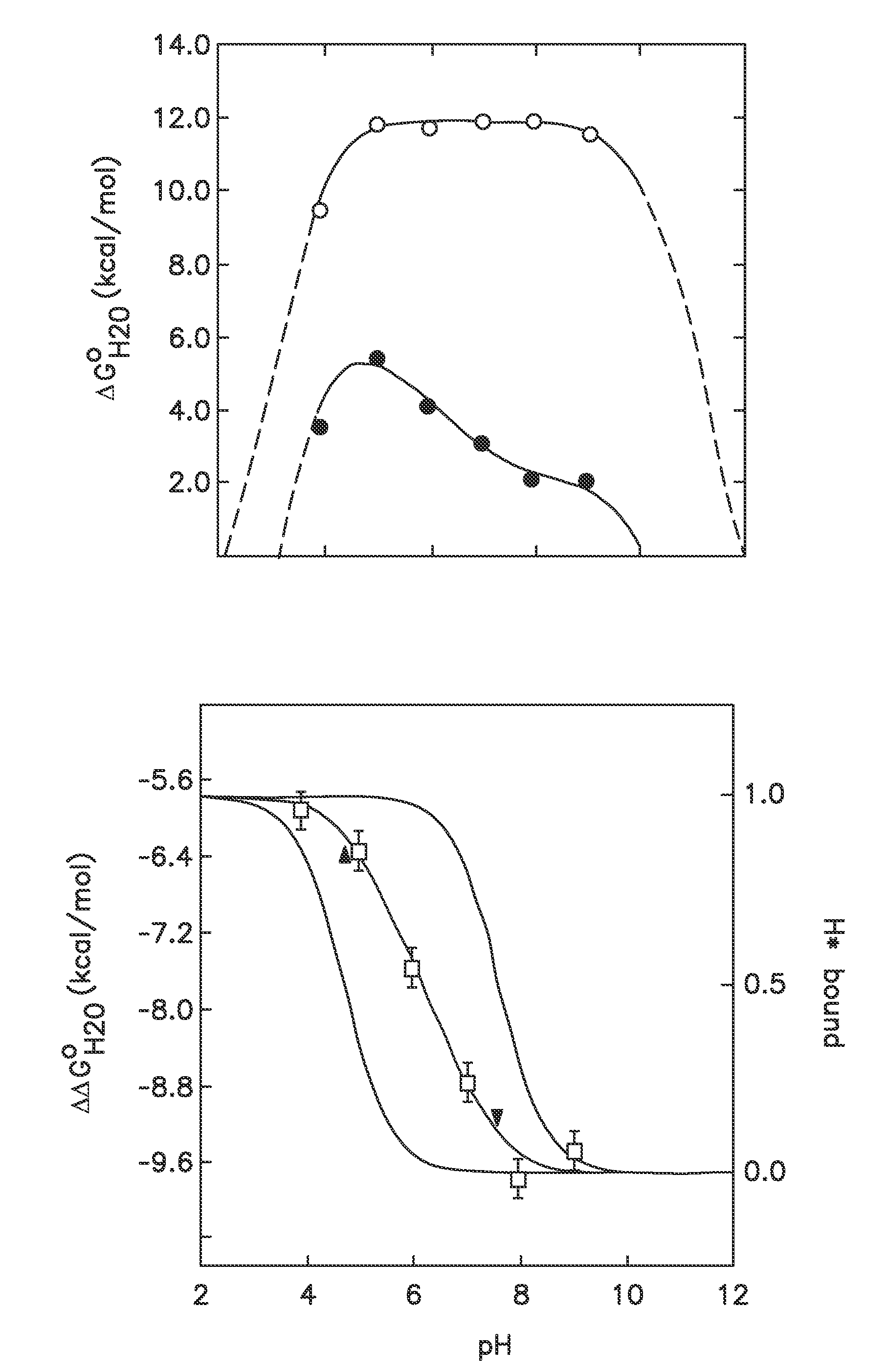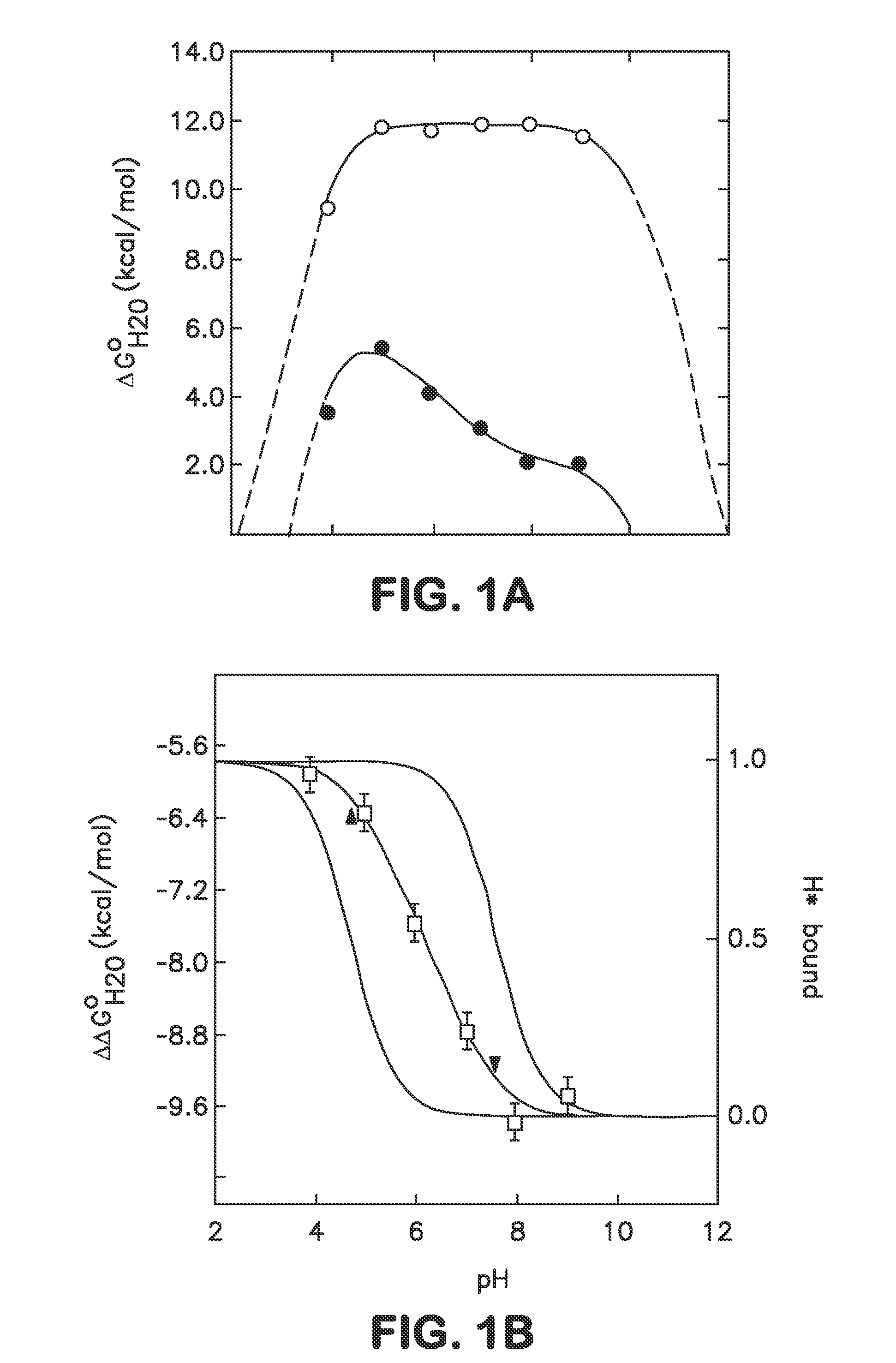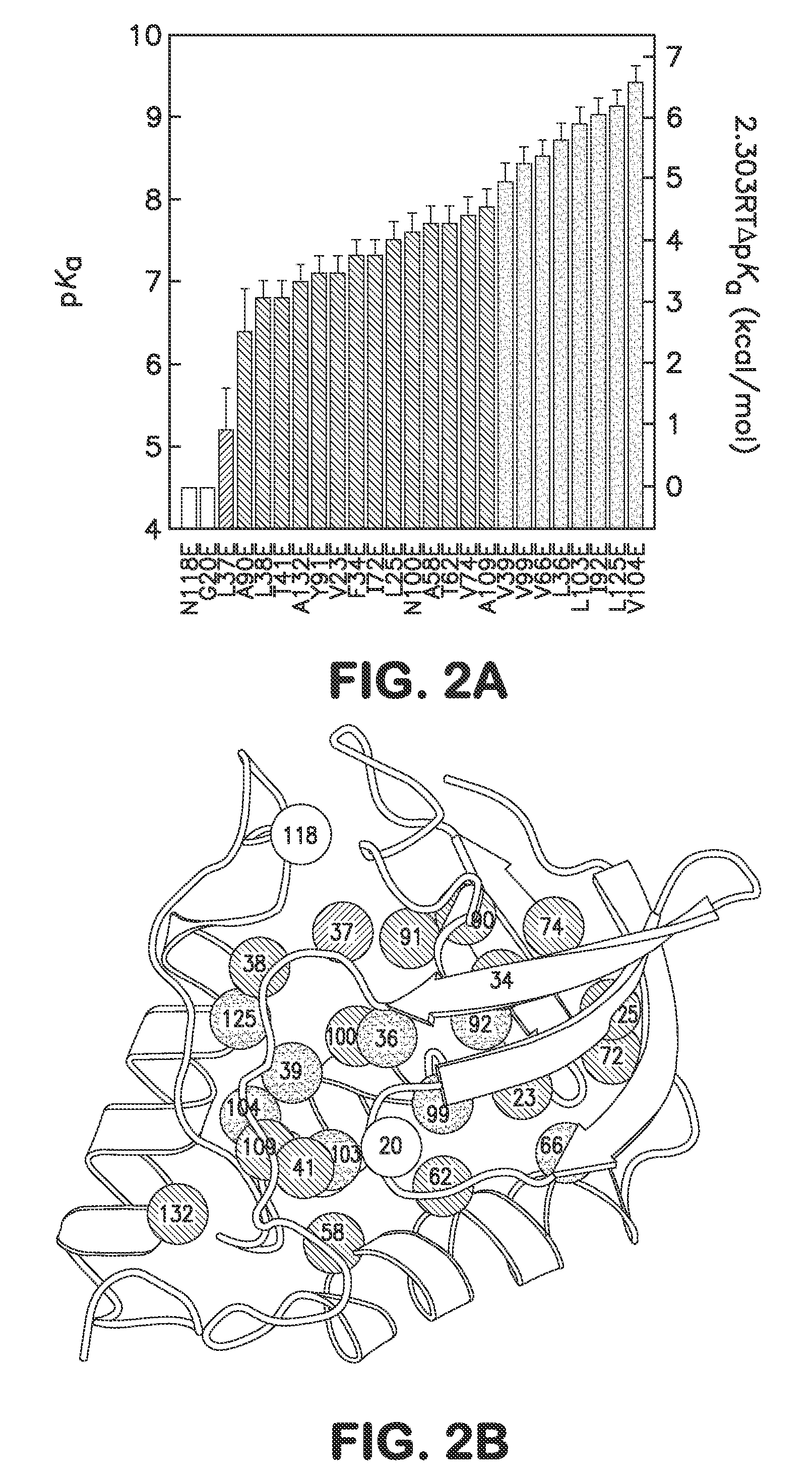Method for Incorporating Internal Polar and Ionizable Groups in Proteins
a technology of ionizable groups and proteins, applied in the field of protein engineering, can solve the problems of inability to introduce ionizable groups into the cores of proteins, plagued efforts in the engineering of novel enzymes, etc., and achieve the effects of increasing the thermodynamic stability of proteins
- Summary
- Abstract
- Description
- Claims
- Application Information
AI Technical Summary
Benefits of technology
Problems solved by technology
Method used
Image
Examples
Embodiment Construction
[0038]The disclosure is illustrated by the following exemplary embodiments, which are not to be construed in any way as imposing limitations on the scope thereof. On the contrary, various other embodiments, modifications, and equivalents thereof, which, after reading the description herein, may suggest themselves to those skilled in the art, may be made without departing from the spirit or the scope of the present disclosure. All publications, patents and patent applications disclosed herein are incorporated into this application by reference in their entirety.
[0039]In one embodiment the disclosure provides methods for incorporating internal polar and ionizable groups inside of proteins, the method comprising the steps of: a) increasing the thermodynamic stability of the protein; and b) incorporating polar and ionizable groups for hydrophobic groups inside the protein, thereby incorporating the internal polar and ionizable groups inside of the protein.
[0040]In one aspect the disclos...
PUM
| Property | Measurement | Unit |
|---|---|---|
| pKa | aaaaa | aaaaa |
| pKa | aaaaa | aaaaa |
| pKa | aaaaa | aaaaa |
Abstract
Description
Claims
Application Information
 Login to View More
Login to View More - R&D
- Intellectual Property
- Life Sciences
- Materials
- Tech Scout
- Unparalleled Data Quality
- Higher Quality Content
- 60% Fewer Hallucinations
Browse by: Latest US Patents, China's latest patents, Technical Efficacy Thesaurus, Application Domain, Technology Topic, Popular Technical Reports.
© 2025 PatSnap. All rights reserved.Legal|Privacy policy|Modern Slavery Act Transparency Statement|Sitemap|About US| Contact US: help@patsnap.com



